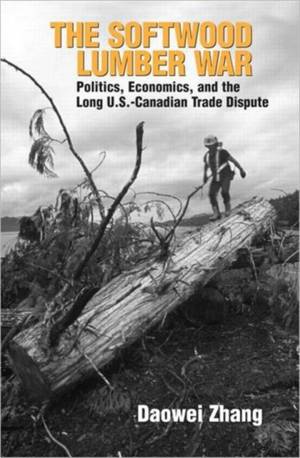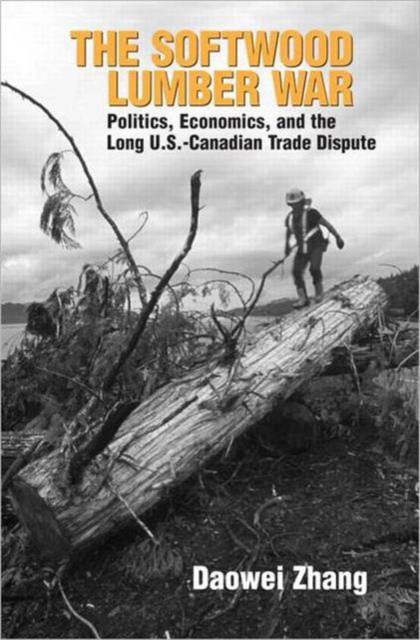
- Retrait gratuit dans votre magasin Club
- 7.000.000 titres dans notre catalogue
- Payer en toute sécurité
- Toujours un magasin près de chez vous
- Retrait gratuit dans votre magasin Club
- 7.000.000 titres dans notre catalogue
- Payer en toute sécurité
- Toujours un magasin près de chez vous
The Softwood Lumber War
Politics, Economics, and the Long U.S.-Canadian Trade Dispute
Daowei Zhang
Livre broché | Anglais
63,95 €
+ 127 points
Format
Description
As a forester interested in economics and policy, Daowei Zhang followed the softwood lumber dispute between the U.S. and Canada for nearly 20 years. Dubbed the 'Softwood Lumber War, ' the conflict enveloped politicians and business leaders on both sides of the border and placed strains on the historically close economic and political relations between the two countries. This book is an unprecedentedly detailed evaluation of how the conflict began and how it was sustained for such a long period of time. The book considers the implications that may follow from the 2006 agreement between the nations, and the broader lessons that might be learned about international trade conflicts. The early 1980s was a difficult time for U.S. lumber producers. Finding their domestic market share in decline, they requested restrictions on Canadian lumber imports. Alleging that the Canadian producers were being subsidized, they eventually secured a 15 percent export tax on Canadian lumber in 1986. A long series of trade battles followed against a background of shortages in the U.S. timber supply, changing international markets, and the establishment of the North American Free Trade Agreement and the World Trade Organization. Canada and the United States are the world's largest trading partners, but, as Zhang demonstrates, it is a relationship in which domestic pressure groups, different institutional structures within each government, and differences in the relative economic power of each country remain extremely important determinants of foreign policy. The fact that the softwood lumber dispute has taken so long to resolve-and the prospect that the 2006 agreement has the potential to be undone by continuing litigation and trade friction-raise important questions about international relations in a world that is supposedly moving toward free trade.
Spécifications
Parties prenantes
- Auteur(s) :
- Editeur:
Contenu
- Nombre de pages :
- 320
- Langue:
- Anglais
Caractéristiques
- EAN:
- 9781933115566
- Date de parution :
- 01-09-07
- Format:
- Livre broché
- Format numérique:
- Trade paperback (VS)
- Dimensions :
- 163 mm x 234 mm
- Poids :
- 458 g







